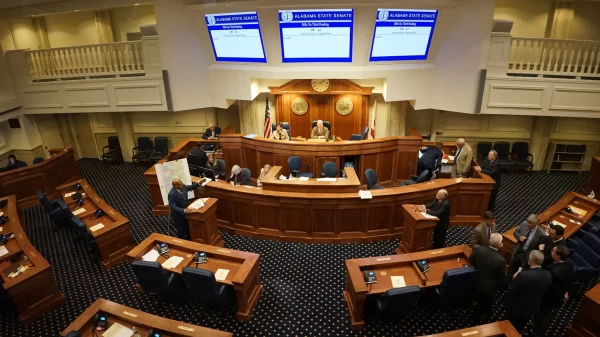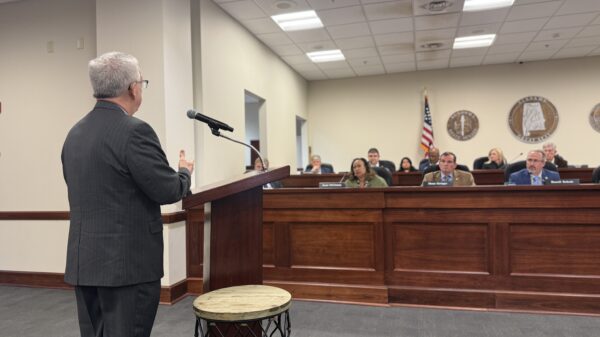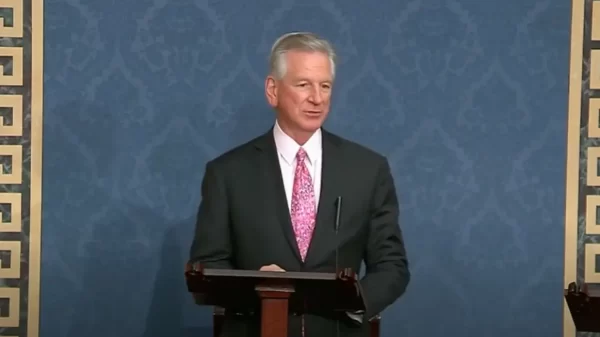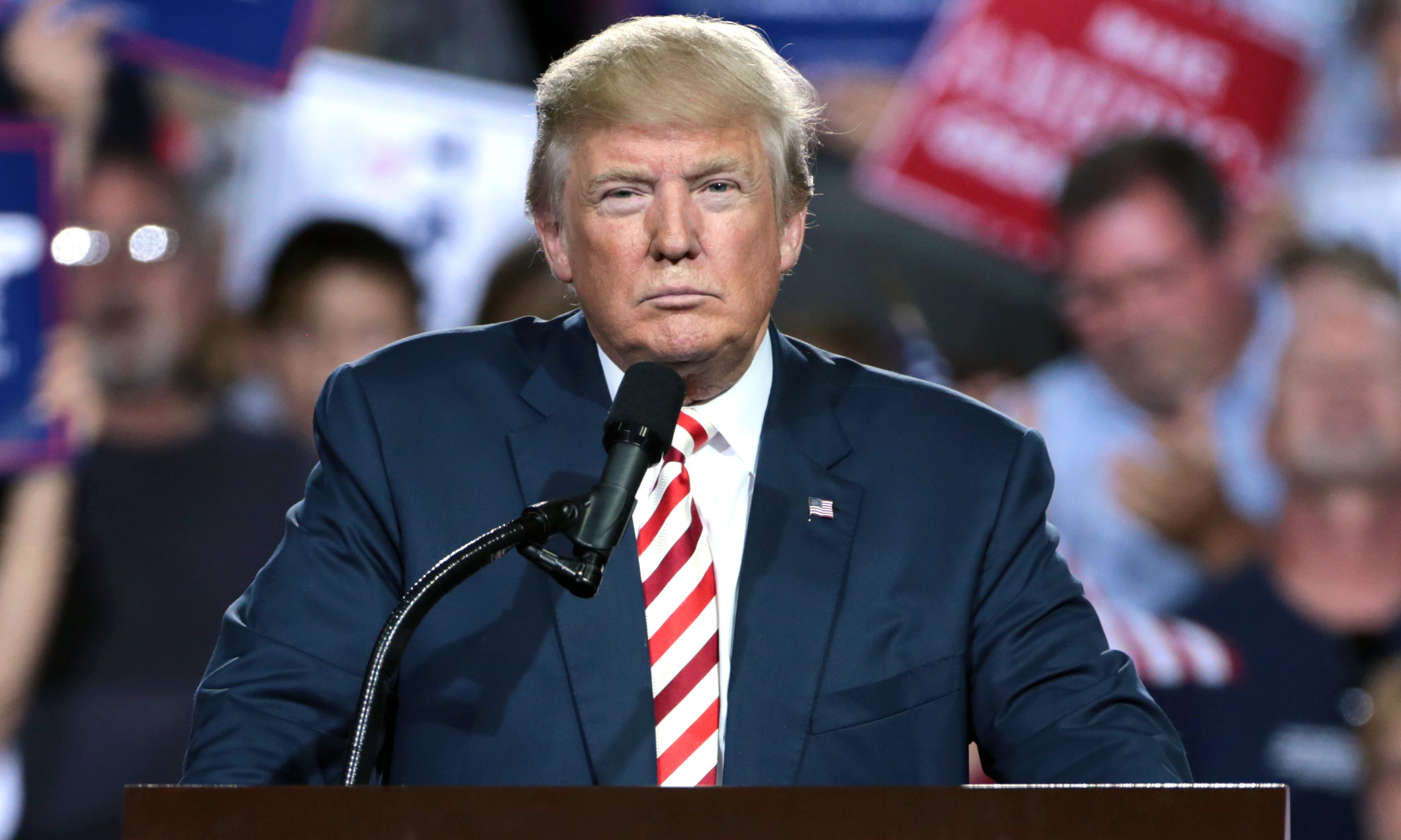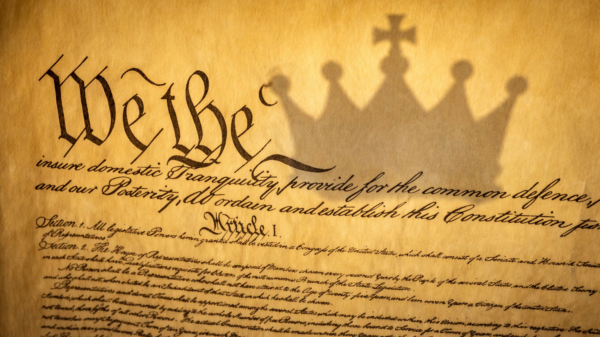President Donald Trump announced on Tuesday that the U.S. will not honor the terms of the Iran Nuclear Arms Agreement, which Trump had denounced during the campaign as a very bad deal.
Several Republican members of the Alabama Congressional delegation were quick to release statements supporting the decision by Trump.
U.S. Rep. Martha Roby, R-Montgomery, released a statement that praised the president’s position.
“I have said from the very beginning that the Iran Deal was a flawed, weak deal that served the interests of bad actors in Iran at the expense of our own,” Roby said. “I strongly opposed this Obama-era executive agreement, and I support the Trump Administration’s efforts to ensure that we truly end Iran’s nuclear weapons program.”
Congressman Bradley Byrne also released a statement supportive of President Trump’s decision.
“President Obama’s decision to enter into the nuclear ‘deal’ with Iran was the biggest U.S. foreign policy mistake since the end of World War I, and it has not made America or the world a safer place,” Congressman Byrne said. “President Trump is right to exit the deal and hold Iran accountable for their reckless and dangerous actions.”
“The news from the White House and President Trump this morning was welcome news,” Congressman Robert Aderholt said. “It was a bad agreement from the beginning. The history of Iran has been very bad It was the right thing to do. We will get a good agreement.”
“Moving forward, Congress must stand locked-arm in our approach to dealing with this rogue nation for the sake of our national security,” Roby added. “I believe it is imperative that we reinstate the economic sanctions against Iran that were in place prior to this nuclear agreement. It’s no secret that Iran has not stopped its efforts to obtain a nuclear weapon, and we must take this threat very seriously in our future negotiations with the leading state sponsor of terrorism.”
The deal had never been ratified by the Senate, so it does not have the authority that a treaty would have had. Congress had delegated authority to deal with Iran to whomever was president of the United States.
“It is also important to remember that there has been bipartisan opposition in Congress to the Iran deal since it was first announced,” Byrne said. “Despite a majority in the House and the Senate expressing opposition to the deal, President Obama chose to act alone without Congressional approval, and that is one of many reasons why this ‘deal’ was never going to work.”
“Moving forward, I pledge to do what I can to work with the Trump Administration to hold Iran accountable, push back against their nuclear weapon and missile programs, and ensure the safety of the American people and our allies,” Byrne concluded.
“The history of Iran has been very poor,” Aderholt said. “I trust the information that President Trump has. It was the right thing to do, and I feel we will get a good agreement.”
“It is clear to me that we cannot prevent an Iranian nuclear bomb under the decaying and rotten structure of the current agreement,” Trump said from the White House Diplomatic Room. “The Iran deal is defective at its core. If we do nothing, we know exactly what will happen.”
The President also signed a memorandum imposing economic sanctions on Iran.
Iran could respond by breaking out of the agreement itself and rapidly moving toward developing nuclear weapons; but that could still lead to sanctions from other signatories of the agreement. The U.S. now has broken out of the agreement and is unilaterally imposing economic sanctions on Iran.
The option of acting militarily to destroy or degrade Iran’s nuclear facilities is technically back on the table, but France, Great Britain and Germany have all asked the president not to back out of the agreement so those countries would be unlikely to support military action. Former Secretary of State John Kerry had been actively working to try to save the Iran deal he negotiated. His efforts did not move the president.
Trump said that he won’t allow Iran to have nuclear weapons and added ominously that he is a president “that does not make empty threats.”
Critics of the decision argue that this decision further isolates America from the rest of the world.
As a candidate in 2016, Trump promised voters that he would back out of the Iran deal. He has now kept that campaign promise.












